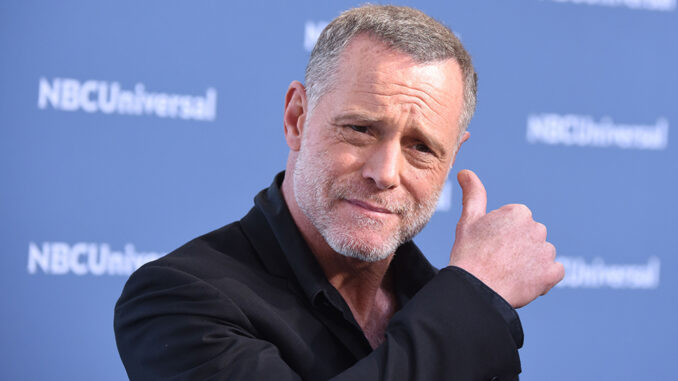
Voight vs. Reid: What's Next in Chicago P.D.'s Shifting Sands of Power
Chicago P.D. thrives on the ever-present tension between upholding the law and bending it, and at the heart of that moral ambiguity lies the constant power struggle between its characters. In recent seasons, this struggle has intensified, most notably with the introduction of Richard Wheatley's former tech whiz, Hailey Upton's conflicted confidant, and now, burgeoning informant: Noah Reid. The arrival of Reid has not only complicated Upton's world, but has also ignited a subtle but significant power dynamic that threatens to shift the balance within Intelligence, questioning Hank Voight's absolute control and hinting at the potential for a new, more ethical approach to policing, albeit one fraught with its own dangers.
Voight, the bedrock of Intelligence, built his power on a foundation of unwavering loyalty, hardened instincts, and a willingness to cross lines that most officers wouldn't even consider approaching. He commands respect through fear and a demonstrated ability to "get things done," regardless of the cost. His methodology, while effective, is rooted in a deep-seated belief that the ends justify the means, a philosophy that has often placed him at odds with internal affairs and left a trail of collateral damage in his wake.
Reid, on the other hand, represents a different kind of power, one built on intellect, knowledge, and a (potentially) genuine desire for redemption. While undeniably flawed, harboring his own secrets and questionable past actions, Reid’s presence injects a dose of transparency and accountability into the often opaque world of Intelligence. He offers Upton, and potentially the entire unit, an alternative perspective, a reminder that justice shouldn’t always be synonymous with brutal pragmatism. He challenges Voight’s approach by simply existing, by offering information gleaned through technological prowess rather than through intimidation and physical force.
The power struggle isn't a direct confrontation. It's a quiet war waged through influence, information, and the shifting loyalties of the unit. Upton, already wrestling with the moral implications of her actions and her loyalty to Voight, becomes a critical battleground. She finds herself caught between Voight's demanding, unwavering trust and Reid's subtle nudges towards a more nuanced understanding of justice. Her decision to use Reid as an informant, while initially sanctioned by Voight, creates a dependence on a resource that inherently challenges his authority.
The introduction of Reid subtly undermines Voight’s power in several ways. Firstly, it exposes a vulnerability within Intelligence. By requiring outside assistance to crack a complex case, Voight acknowledges, however implicitly, that his methods are not always sufficient. Secondly, Reid’s presence encourages a more cautious approach to policing, forcing the unit to consider the potential ramifications of their actions and the legality of their methods. This slows down the decision-making process and challenges the instinctive, often impulsive, nature of Voight’s leadership. Finally, Reid’s inherent unpredictability adds an element of chaos into Voight’s meticulously controlled environment. He is an unknown quantity, a wildcard that could potentially expose past transgressions or disrupt the carefully constructed hierarchy of Intelligence.
So, what's next? The dynamic between Voight and Reid is ripe for further exploration. We can expect to see Voight attempting to manipulate Reid to his own ends, leveraging his desperation for redemption to further his own agenda. However, Reid, with his sharp intellect and understanding of human nature, is unlikely to be a passive pawn. He will likely try to use his position within Intelligence to effect real change, pushing the unit towards a more ethical and accountable approach to policing.
The future of Chicago P.D. hangs in the balance. Will Voight be able to maintain his grip on power, adapting to the changing landscape and integrating Reid into his existing framework? Or will Reid's influence lead to a gradual erosion of Voight's authority, paving the way for a more collaborative and ethically conscious approach to law enforcement? The answer likely lies somewhere in the middle. The inherent nature of television drama suggests that the power struggle will continue, with both Voight and Reid learning to navigate the treacherous waters of Chicago P.D., potentially forging an unlikely alliance or ultimately succumbing to the inevitable conflicts that arise when opposing forces collide. Whatever the outcome, the introduction of Noah Reid has irrevocably altered the power dynamics within Intelligence, ensuring that the future of Chicago P.D. will be defined by the ongoing tension between old methods and new possibilities. The shifting sands of power have settled, at least for now, revealing a landscape where Voight's dominance is no longer absolute, and the potential for a new order, however precarious, has begun to emerge.
